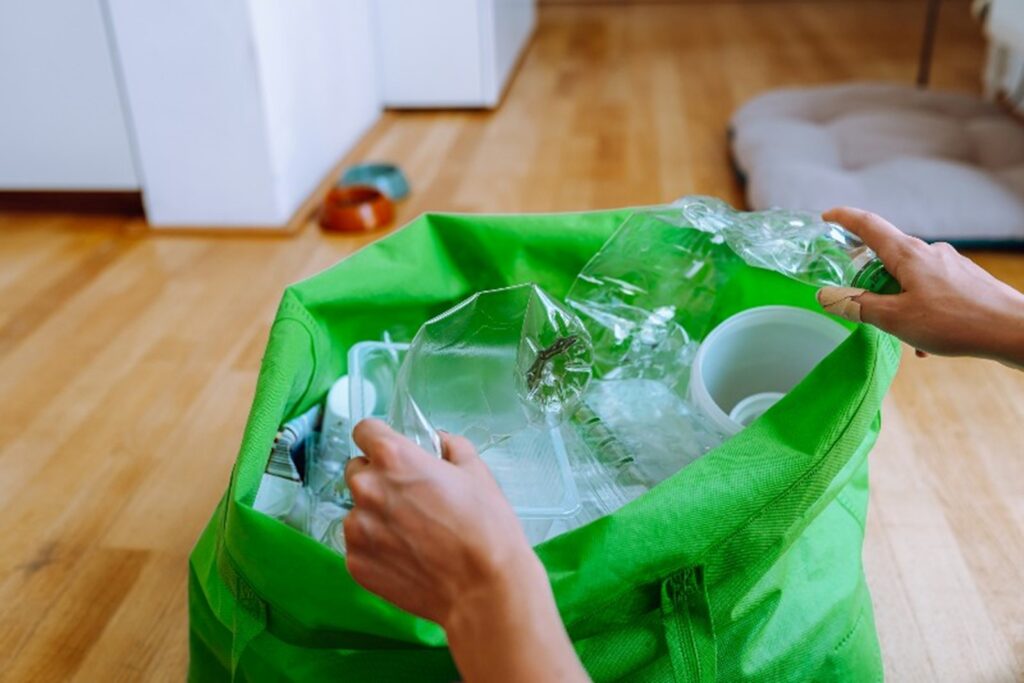5901 Botham Jean Blvd, Dallas, TX 75215
How to Prepare Items for Recycling
October 12, 2023
As the focus on sustainability and conservation grows, recycling has become integral to daily life. Whether it’s the cardboard boxes from a recent online shopping spree or your old laptop that’s been gathering dust for years, proper preparation makes a big difference. Learn some straightforward tips on how to prepare various items for recycling to promote efficiency at the processing plant.
How to Prepare Cardboard Boxes for Recycling
Cardboard is one of the most commonly recycled materials. Before recycling, flatten your boxes to save space in your recycling bin and facilitate easier transportation. Remove any plastic packaging, Styrofoam inserts, or other non-paper packing materials to avoid contaminating the recycling process.
How to Prepare a Laptop for Recycling
Laptops contain valuable materials that can be recycled, but they also hold personal data that requires careful handling. Start by backing up your data, and then perform a factory reset or use software to wipe the hard drive. Remove the battery if possible, as this hazardous component must be recycled separately.
How to Prepare Batteries for Recycling
Note that batteries shouldn’t go in your regular recycling bin. They contain toxic and reactive elements, so they also don’t belong in the trash. Your best bet is to take them to a designated battery recycling facility or drop-off point. The only recommended preparation is to tape rechargeable battery terminals to prevent short-circuiting.
How to Prepare Glass and Plastic for Recycling
Clean and dry bottles and containers before recycling. Remove any caps or lids, as these are often made from different types of plastics and need to be processed separately. Crushing containers where possible is also recommended to save space in your recycling bin.
Know What Can and Can’t Be Recycled
It’s crucial to understand which items are recyclable and which are not to avoid contaminating the recycling stream.
What can be recycled:
- Paper and cardboard
- Glass bottles and jars
- Metal cans and aluminum foil
- Certain plastics (check local guidelines)
What can’t be recycled:
- Food-contaminated items
- Plastic bags, wrap, and sandwich baggies
- Plastic utensils, paper plates, napkins, and paper towels
- Wax paper and wax-coated cardboard
- Foam of any kind
- Bottle caps
- Broken glass
- Loose soda can tabs (leaving them on the can is fine)
- Ceramics and dishware
- Light bulbs
- Batteries (only at designated facilities)
Other Recycling Tips
- Clean, dry, and empty your recyclables before placing them in the bin.
- Don’t bag your recyclables; simply place them loosely in the recycling bin.
- Recycling rules vary, so contact your local services if you have questions.
Choose Okon Recycling
Okon Recycling handles public works recycling for the City of Dallas. Trucks pick up recyclables from residents’ homes and transport them to our center for sorting and processing. Besides this public recycling service, we also offer commercial scrap recycling, parts harvesting, magnet recycling, and more on a local, national, and international level. Our fourth-generation family business keeps millions of pounds of recyclables out of landfills each year, supporting our goal to make a sustainable impact on our local community and the world. Contact us at 214-426-6566 to learn how we can assist with your recycling needs.
